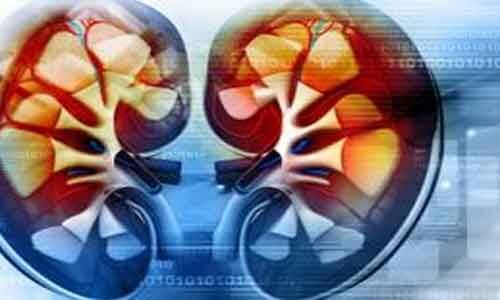- Home
- Medical news & Guidelines
- Anesthesiology
- Cardiology and CTVS
- Critical Care
- Dentistry
- Dermatology
- Diabetes and Endocrinology
- ENT
- Gastroenterology
- Medicine
- Nephrology
- Neurology
- Obstretics-Gynaecology
- Oncology
- Ophthalmology
- Orthopaedics
- Pediatrics-Neonatology
- Psychiatry
- Pulmonology
- Radiology
- Surgery
- Urology
- Laboratory Medicine
- Diet
- Nursing
- Paramedical
- Physiotherapy
- Health news
- Fact Check
- Bone Health Fact Check
- Brain Health Fact Check
- Cancer Related Fact Check
- Child Care Fact Check
- Dental and oral health fact check
- Diabetes and metabolic health fact check
- Diet and Nutrition Fact Check
- Eye and ENT Care Fact Check
- Fitness fact check
- Gut health fact check
- Heart health fact check
- Kidney health fact check
- Medical education fact check
- Men's health fact check
- Respiratory fact check
- Skin and hair care fact check
- Vaccine and Immunization fact check
- Women's health fact check
- AYUSH
- State News
- Andaman and Nicobar Islands
- Andhra Pradesh
- Arunachal Pradesh
- Assam
- Bihar
- Chandigarh
- Chattisgarh
- Dadra and Nagar Haveli
- Daman and Diu
- Delhi
- Goa
- Gujarat
- Haryana
- Himachal Pradesh
- Jammu & Kashmir
- Jharkhand
- Karnataka
- Kerala
- Ladakh
- Lakshadweep
- Madhya Pradesh
- Maharashtra
- Manipur
- Meghalaya
- Mizoram
- Nagaland
- Odisha
- Puducherry
- Punjab
- Rajasthan
- Sikkim
- Tamil Nadu
- Telangana
- Tripura
- Uttar Pradesh
- Uttrakhand
- West Bengal
- Medical Education
- Industry
Furosemide stress test effectively predicts progression of acute kidney injury

Researchers have found in a new Systematic review and Meta-analysis that furosemide stress test (FST) is useful biomarker for predicting progression of disease in acute kidney injury and need for renal replacement therapy.The research has appeared in the journal Critical Care.
The incidence of in-hospital acute kidney injury (AKI) ranges from 7.0–18.3% among hospitalized patients in general and up to 20–50% in critically ill populations . Because of the high morbidities and mortalities associated with AKI, many investigators have focused on several novel biomarkers for earlier detection of AKI,
The use of the furosemide stress test (FST) as an acute kidney injury (AKI) severity marker has been described in several trials. However, the diagnostic performance of the FST in predicting acute kidney injury progression has not yet been fully discussed.
The researchers searched the PubMed, Embase, and Cochrane databases up to March 2020 in accordance with the Preferred Reporting Items for Systematic Reviews and Meta-Analyses (PRISMA) guidelines. The diagnostic performance of the FST (in terms of sensitivity, specificity, number of events, true positive, false positive) was extracted and evaluated.
They identified eleven trials that enrolled a total of 1366 patients, including 517 patients and 1017 patients for whom the outcomes in terms of AKI stage progression and renal replacement therapy (RRT), respectively, were reported.
The pooled sensitivity and specificity results of the FST for AKI progression prediction were 0.81 and 0.88 , respectively. The pooled positive likelihood ratio (LR) was 5.45 , the pooled negative LR was 0.26, and the pooled diagnostic odds ratio (DOR) was 29.69 .
The summary receiver operating characteristics (SROC) with pooled diagnostic accuracy was 0.88. The diagnostic performance of the FST in predicting AKI progression was not affected by different AKI criteria or underlying chronic kidney disease. The pooled sensitivity and specificity results of the FST for RRT prediction were 0.84 (95% CI 0.72–0.91) and 0.77 (95% CI 0.64–0.87), respectively. The pooled positive LR and pooled negative LR were 3.16 (95% CI 2.06–4.86) and 0.25 (95% CI 0.14–0.44), respectively. The pooled diagnostic odds ratio (DOR) was 13.59 , and SROC with pooled diagnostic accuracy was 0.86. The diagnostic performance of FST for RRT prediction is better in stage 1–2 AKI compared to stage 3 AKI .
The researchers concluded that furosemide stress test (FST) is a simple tool for the identification of AKI populations at high risk of AKI progression and the need for RRT. However the diagnostic performance of FST in RRT prediction is better in early AKI population.
For further reference log on to:
Chen, J., Chang, C., Huang, Y. et al. Furosemide stress test as a predictive marker of acute kidney injury progression or renal replacement therapy: a systemic review and meta-analysis. Crit Care 24, 202 (2020). https://doi.org/10.1186/s13054-020-02912-8
Dr Kamal Kant Kohli-MBBS, DTCD- a chest specialist with more than 30 years of practice and a flair for writing clinical articles, Dr Kamal Kant Kohli joined Medical Dialogues as a Chief Editor of Medical News. Besides writing articles, as an editor, he proofreads and verifies all the medical content published on Medical Dialogues including those coming from journals, studies,medical conferences,guidelines etc. Email: drkohli@medicaldialogues.in. Contact no. 011-43720751


